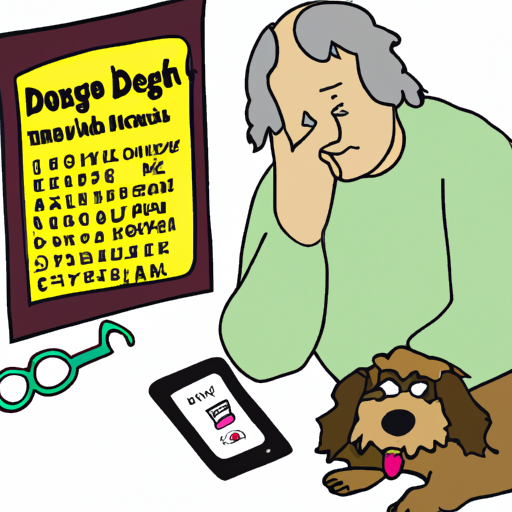As a dog owner, one of the most distressing things you can come across is your furry friend battling diarrhea. It can be messy, inconvenient, and, most importantly, indicative of a potentially serious health issue. This comprehensive guide will help you understand how long can diarrhea last in dogs, what can cause it, and what you can do for your pet during this difficult time.
Table of Contents
- Understanding Canine Diarrhea
- Causes of Diarrhea in Dogs
- How Long Does Diarrhea Typically Last?
- When to Seek Veterinary Assistance
- Treatment Options for Canine Diarrhea
- Preventing Diarrhea in Dogs
- Frequently Asked Questions
Understanding Canine Diarrhea
Diarrhea in dogs, like in humans, is characterized by loose or liquid bowel movements. It can be a symptom of a variety of conditions, some of them serious. It’s essential to monitor your dog and contact a vet if you notice any drastic or prolonged changes in their stool. You can find more in-depth information about canine diarrhea and its symptoms here.
Causes of Diarrhea in Dogs
There are numerous causes for diarrhea in dogs, including:
- Dietary indiscretions, like eating garbage or spoiled food
- Changes in diet
- Food allergies or intolerances
- Ingestion of foreign objects
- Parasites
- Viral or bacterial infections
- Certain medications
- Chronic conditions like inflammatory bowel disease or pancreatitis
You can read more about these causes on One Top Dog.
How Long Does Diarrhea Typically Last?
In most cases of acute diarrhea, symptoms should resolve within a few days. However, chronic diarrhea can persist for several weeks or even longer. It’s important to monitor your pet closely and seek veterinary care if symptoms do not improve within 48 to 72 hours.
Here’s a table summarizing the typical duration for different types of diarrhea:
| Type of Diarrhea | Duration |
|---|---|
| Acute | 1-2 days |
| Chronic | Several weeks or longer |
When to Seek Veterinary Assistance
While occasional diarrhea is not usually a cause for concern, you should seek immediate veterinary care if your dog exhibits any of the following symptoms:
- Diarrhea that lasts more than two days
- Blood in the stool
- Lethargy or decreased activity levels
- Vomiting
- Loss of appetite
- Signs of pain or distress
You can find a list of emergency clinics in your area on One Top Dog.
Treatment Options for Canine Diarrhea
Treatment for diarrhea in dogs depends on the underlying cause. In some cases, dietary changes or medications may be recommended. In more serious cases, hospitalization and intravenous fluids may be required.
For more information on treating canine diarrhea, check out this comprehensive guide on One Top Dog.
Preventing Diarrhea in Dogs
Preventing diarrhea primarily involves maintaining a healthy, balanced diet for your dog and avoiding sudden dietary changes. Regular vet check-ups and vaccinations can also help prevent infections and parasites that can cause diarrhea.
Frequently Asked Questions
Q: Can I give my dog over-the-counter medication for diarrhea?
A: It’s essential to consult with a vet before giving your dog any medication. Some human medications can be harmful or even fatal to dogs.
Q: Can diarrhea be a sign of something serious?
A: While diarrhea can sometimes be a symptom of a serious condition, it’s also a common response to dietary changes or minor infections. If your dog’s diarrhea persists for more than two days or is accompanied by other symptoms like vomiting or lethargy, you should seek veterinary care immediately.
Q: What should I feed my dog if they have diarrhea?
A: A bland diet of white rice and boiled chicken can often help soothe a dog’s upset stomach. However, you should always consult with a vet before making any significant changes to your pet’s diet.
In conclusion, while diarrhea in dogs is a common issue, it’s important to monitor your dog closely and seek veterinary care if symptoms persist. Understanding the potential causes and treatments can help you ensure your furry friend stays healthy and happy.



